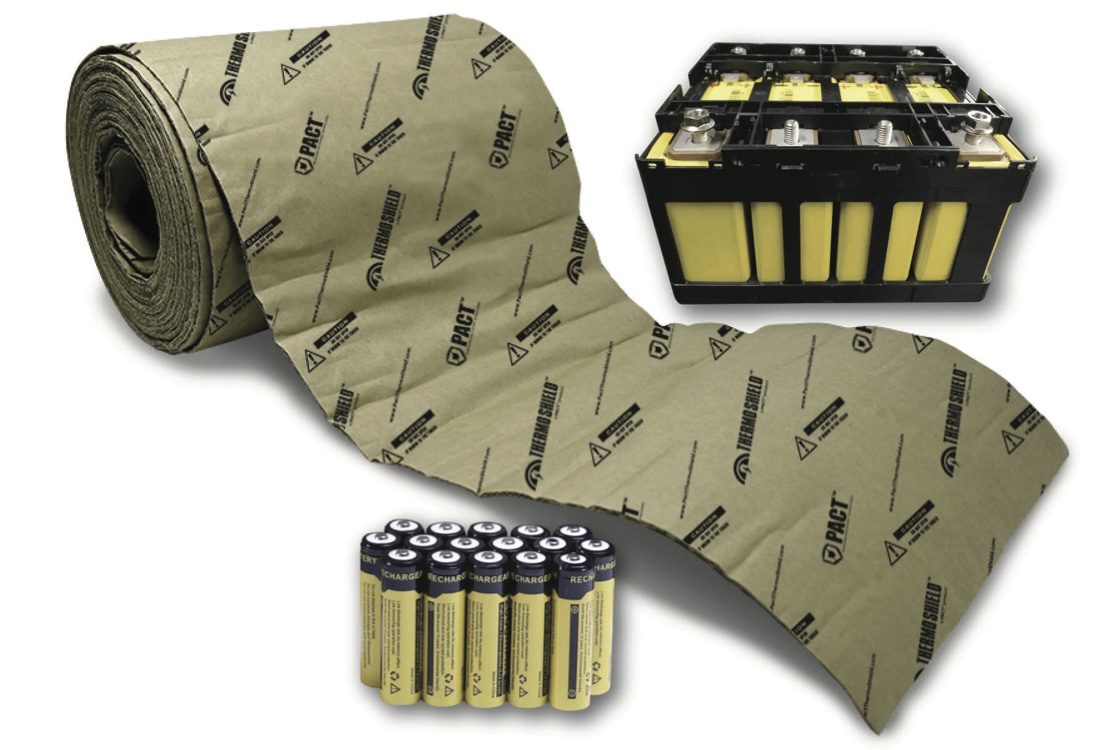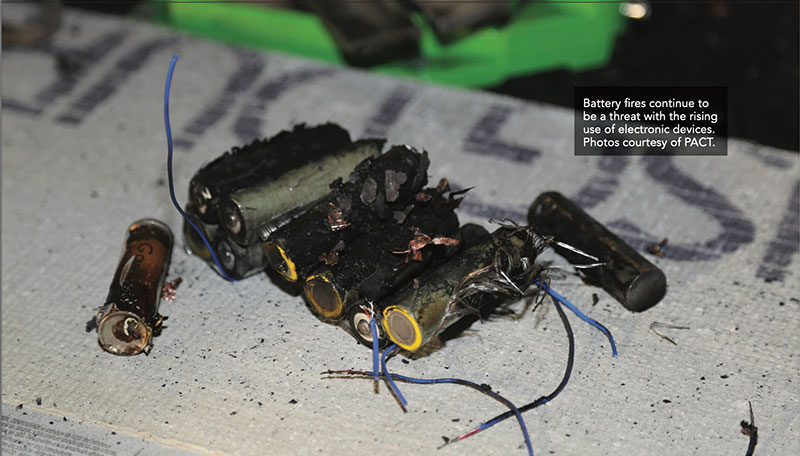Extinguishing Lithium-Ion Battery Liability with Green Packaging
- Published: February 22, 2024

By Rodger Mort, President, Packaging and Crating Technologies (PACT®), LLC
Despite the dangers, lithium-ion batteries are here to stay. How to safely transport, store and recycle these batteries that are used to power hand-held electronics, e-bikes, scooters and more was a hot topic at the recent Battery Show in Michigan.
Shipping lithium-ion batteries can be hazardous. One of the biggest threats is battery explosion that leads to thermal runaway – a phenomenon in which the lithium-ion cell enters an uncontrollable, self-heating state caused by extremely high temperatures, shaking or puncturing. The resulting flames are extremely difficult for firefighters to extinguish, so the fires usually have to smolder out on their own after many hours, emitting lethal fumes and gases.
To avoid potential loss of life or property damage from these fires, the first step is to use outer packaging made of durable, waterproof and cushioned, yet cost-effective and eco-friendly, materials. Keep purchasing and shipping costs down with packaging that is also lightweight and reusable. Good options are UN-rated fiberboard containers and UN-rated wooden crating.
To ensure safety and avoid compliance issues, companies also need to adhere to the U.S. Department of Transportation (DOT) standards that make sure lithium cells and batteries shipments are properly packaged to be able to withstand normal transportation conditions.
The next step is to wrap these batteries in a protective material that can contain both fire and residual smoke, such as a lightweight, paper material with a moisture vapor application that prevents thermal runaway. However, if thermal runaway does occur, such wraps immediately cool the internal environment of the package, while limiting oxygen around the payload. There are such solutions that not only meet, but exceed the proposed SAE G-27 standards for safety in shipping lithium-ion batteries via land, sea and air.
An added concern is transporting batteries, as well as lithium-ion powered devices that are damaged or recalled. With this technology, PACT received a special permit from the DOT to ship damaged lithium batteries safely and effectively, and many customers have been able to ship DDR and recyclable batteries at a lower cost.

Recently, the items containing lithium-ion batteries that have ignited dangerous fires are electric bikes, scooters, hover- boards, unicycles and electric cars. To address this escalating issue, a specially-coated, fire-suppressant paper wrapped around each battery cell to mitigate thermal runaway between them — thus serving as a heat and flame barrier — is recommended. Independent, third-party organizations have tested some such products multiple times and concluded that they prevented thermal runaway propagation amongst cells. To safely transport and store recyclable smaller devices such as cell phones, pagers, smartwatches and A-D batteries, a similar but smaller product exists.
In the event of a lithium-ion battery fire, water alone will not put out the flames. There is a new product offering a premixed, water-based solution that quenches fires upwards of 1600 F within 30 seconds, while eliminating the release of toxic gases into the environment. When sprayed from an automatic or manual nozzle, the solution sticks to 3-D shapes, overhead and vertical surfaces, and easily penetrates small crevices. Further, it is designed to be used without personal protective equipment (PPE) and its powder-like residue is safe to wash and flush into sewers. The extinguisher successfully passed all burn tests conducted by VTEC Laboratories in New York City, the recommended lab by the Fire Department of New York.
In conclusion, as the number of electronic devices continues to increase in our modern society, so does the threat of deadly lithium-ion battery fires which power them up. We must continue to bring together engineers, business leaders, top-industry companies and innovative thinkers to discover ground-breaking products and create powerful E-mobility battery solutions for the future.
About the Author
Rodger Mort is Chief Operating Officer at PACT, a global manufacturer of sustainable, corrugated cardboard packaging containers for the commercial, industrial and military industries. Mort brings 38 years of green packaging experience to the industry with a specialty of designing paper-based packaging material that suppresses and controls lithium-ion battery fires by mitigating thermal runaway. Under his direction, the company is a current member of the Commercial Relocation Network, the Council on Safe Transportation of Hazardous Materials and the International Association of Movers. Visit www.pactww.com for more information.





